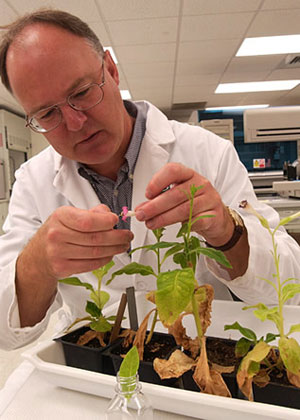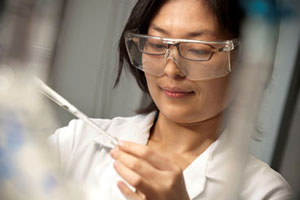Biotechnologist
Tasks & duties

Biotechnologists may do some or all of the following:
-
study micro-organisms, such as bacteria, fungi, yeast, and their enzymes
-
develop and test methods of making new products
-
operate equipment used to process biological materials such as food and plants
-
genetically modify organisms to make new products
-
meet with clients to discuss problems and propose solutions using biotechnology
-
monitor production trends and data
-
work out budget and production costs, and prepare funding or patent applications
-
advise governments, organisations or businesses on biotechnology issues
-
participate in intellectual property negotiations related to their field of expertise
Skills & knowledge
Biotechnologists need to have:
-
knowledge of biochemistry, microbiology, molecular biology and physics
-
an understanding of industrial processes
-
knowledge of safety procedures relating to the hazardous substances they use
-
an understanding of statutory and ethical responsibilities relating to genetic engineering
-
budgeting and business management skills
-
skill in analysing and interpreting research results
-
practical skills for performing experiments and operating scientific equipment
-
problem-solving skills
-
planning and organisational skills
-
writing skills, for writing reports or proposals
-
maths and computer skills
Entry requirements
To become a biotechnologist you need to have one of these degrees:
-
Bachelor of Science majoring in biochemistry, genetics, molecular biosciences, food technology, or plant physiology and biotechnology
-
Bachelor of Engineering majoring in biotechnology
-
Bachelor of Technology majoring in biotechnology, industrial bioscience, biochemical engineering or food technology
Masters or Doctorates in biotechnology or a relevant field are important for research jobs.
Secondary education
A tertiary entrance qualification is needed to enter further training. Bursary or NCEA equivalent calculus, biology, maths, chemistry and physics are preferred.
Training on the job
Although many skills are learned at university, further laboratory and experimental skills are gained on the job.
Biotechnologists may attend conferences and seminars. Some universities also offer business-related professional development courses that relate to biotechnology.
Useful experience

Useful experience for biotechnologists includes:
-
laboratory work
-
research work
-
work in quality control
-
business-related work
Related courses
Biochemistry and Cell Biology
Food Science and Biotechnology
Laboratory Technology
For more information, please refer to Career Services.
Document Actions
